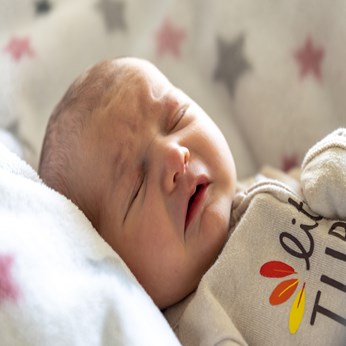Know About Urinary Incontinency In Elders
I had the fortune of attending a talk on urinary continence in elders along with my in-laws. The talk was very informative and covered various aspects on this symptom.
The doctor started off with telling us that urinary incontinence is a symptom and not a disease; it is caused by everyday habits, underlying medical conditions or physical problems. The doctor is the best person who can evaluate the reason behind an elder’s incontinence and offer solutions and help.
An elder could suffer from temporary urinary incontinence due to certain drinks, foods and medications that stimulate the bladder and increase the volume of urine. Some of the things that can act as diuretics are alcohol, caffeine, decaffeinated coffee and tea, corn syrup, artificial sweeteners, and carbonated drinks. Some of the other things that could cause urinary incontinence include foods that are high in sugar or acid especially citrus fruits as well as spices.
Some of the other causes for urinary incontinence include medications that are taken for heart and blood pressure, muscle relaxants and sedatives. It is significant to note that even the intake of high doses of Vitamin B or C could cause this symptom or condition.
The interesting talk of the doctor continued when he told us that urinary incontinence could also be caused by easily treatable medical conditions like urinary tract infection or UTI and constipation.

It is significant to understand that UTI causes infection that irritates the bladder and causes a strong urge to urinate or urinary incontinence. You could easily recognize a urinary tract infection by a burning sensation while urinating or foul smelling urine.
Constipation could also cause urinary incontinence because the rectum is also located near the bladder and shares common nerves. A hard compacted stool in the rectum could make the nerves overactive and increase the frequency of urination.
Urinary incontinence is not caused only in old age, but could have started in women much earlier. It could be a persistent condition that is caused by underlying physical problems or changes. Urinary incontinence could have started during pregnancy when there are hormonal changes in women and they gain weight.
The doctor went on to tell the other causes of stress incontinence namely childbirth. A vaginal delivery could weaken the muscles that are associated with bladder control and damage the nerves of the bladder and supporting tissues and lead to dropping of the pelvic wall. This leads to the bladder, uterus, rectum or small intestine to protrude into the vagina and cause urinary incontinence.
The next cause for persistent urinary incontinence could be menopause; women produce less estrogen after menopause that is vital to keep the lining of the bladder and uterus healthy. Urinary incontinence could aggravate when there is a deterioration of these tissues. As a corollary to it aging of the bladder muscle could also decrease the bladder’s capacity to store urine.
The doctor concluded that hysterectomy or removal of the uterus could also damage the supporting pelvic floor muscles and lead to urinary incontinence. We thanked the doctor for his informative talk.
Take the next step toward your goals
Share your requirement and find the best care providers in your area
-
Looking for a caretaker’s job? Build your profile and get in touch with families in your vicinity.
-
Discover nannies, babysitters, cooks, housekeepers, pet sitters, and elder care under one roof.
-
Get all the support you need to run a successful care center.
-
Search for appropriate centers near you depending on your needs.
Care Corner Insights: Blog Library

Overnight Babysitters in Bellevue, WA for Business-Travelling NRI Parents: Safety & Policies
For many NRI parents living in Bellevue, WA, frequent business trips are a reality. While traveling, one of the biggest concerns is ensuring your children are safe, cared for, and emotionally supported during overnight stays. Overnight babysitters ca

Indian Home-Style Cooks in Queens, NY: Tiffin-Style Weekly Meal Prep from Your Kitchen
Queens, NY, is home to one of the most diverse food cultures in the country, and Indian cuisine holds a special place among families looking for authentic, comforting meals. While restaurant takeout is convenient, nothing compares to the taste and nu

Baby Sleep Problems: What is Sleep Regression and How to Handle It
If you’re a parent, you know that baby sleep is one of the greatest mysteries of life. One day your little one is snoozing like an angel, and the next day they’re suddenly waking up every hour, fussing, or refusing to nap. Before you panic, there’s a

What is Validation Therapy? A New Approach to Dementia Care
Caring for loved ones with dementia is one of the most emotionally challenging journeys a family can face. Traditional methods often focus on correcting memory lapses or redirecting confused thoughts—but that can sometimes lead to frustration, stress

What is a Part-Time Nanny and Do You Need One
Parenting is a beautiful journey, but let’s be honest—it can also be exhausting! Between work deadlines, household chores, and family responsibilities, sometimes there just aren’t enough hours in a day. That’s where part-time nannies step in, offerin

Part-Time Housekeeper Hiring in Alpharetta, GA: Weekly Schedules, Pricing, and Must-Do Tasks
Keeping a home spotless while balancing work, family, and personal commitments can be overwhelming. For families and professionals in Alpharetta, GA, hiring a part-time housekeeper is one of the most practical solutions. Whether you need help once a

Affordable Daycares in Irving, TX with Indian Menu Options: Parent Reviews & Enrollment Tips
Finding the right daycare for your little one is never an easy decision—especially if you’re looking for one that fits your budget and offers familiar food options like an Indian-inspired menu. For parents in Irving, TX, the good news is that several

Can Babies Sleep on Their Side? Tips for Safe Baby Sleep
When it comes to newborns, every parent worries about the smallest details—how they sleep, what they wear, even which way they turn their tiny heads. One common question that pops up is: “Can babies sleep on their side?” The short answer? Not recom

8 Benefits of Hiring a House Cleaner for Your Home
Let’s be honest — keeping a home sparkling clean while juggling work, family, and daily life can feel like a full-time job in itself. That’s where professional house cleaners step in, turning the chaos into calm. If you’ve been debating whether to br

How to Care for a Gassy Baby? What’s Normal and what’s not – Expert Advice
If you’re a new parent navigating the world of burps, bubbles, and baby fussiness—welcome to the club! Gas in babies is incredibly common, especially in the first few months. But how do you know what’s normal and when it’s time to call in expert help